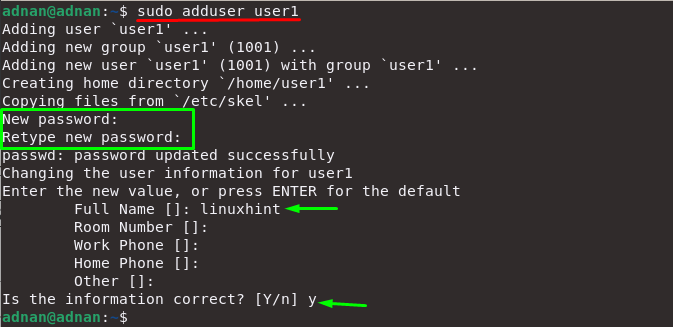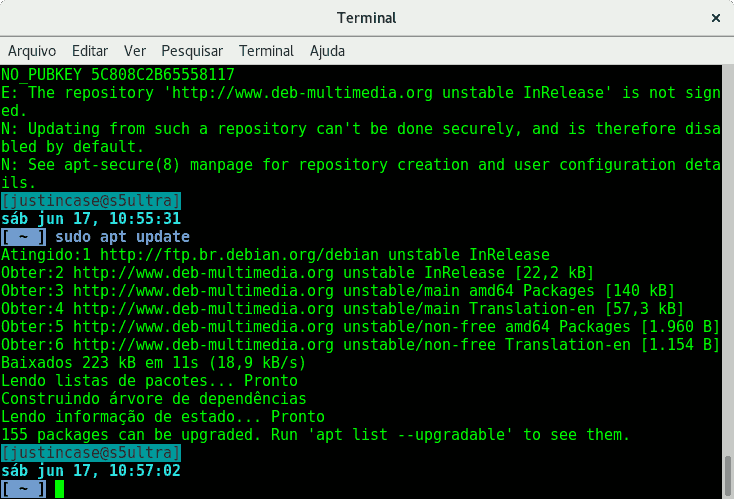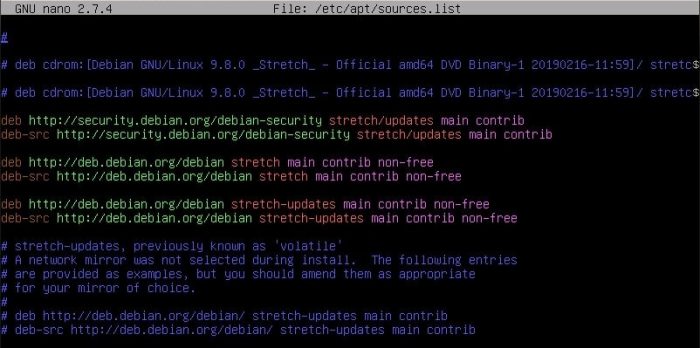

- #Add user to sudoers debian install
- #Add user to sudoers debian full
- #Add user to sudoers debian password
(or first get root as in previous section). You should still verify group membership after logging in as the installed user.Ī user which already has sudo can create another user (example id= foo) with sudo group membership from the commandline: The system will also configure gksu and aptitude to use sudo.
#Add user to sudoers debian password
You can also create new users with sudo membership:Īs of DebianSqueeze, if you give root an empty password during installation, sudo will be installed and the first user will be able to use it to gain root access (currently, the user will be added to the sudo group). A most common source of confusion is that people add themselves to a new group but then do not log out and back in again and then have problems because the group is not assigned be sure to verify group membership. Groups are only assigned to users at login time. To add an existing user with id= foo to group= sudo:Īlternatively, you can first get root (e.g., sudo su -) and then run the same commands without prefix= sudo:Īfter being added to a new group the user must log out and then log back in again for the new group to take effect.

Similarly, the more complex and variable output from command= id should look something like If sudo is not present in the output, the user does not belong to that group. E.g., a user with id= foo should see output from Once logged in as a user, you can verify whether or not the user belongs to group= sudo using either the id or groups commands. Auditing/logging: when a sudo command is executed, the original username and the command are logged.įor the reasons above, switching to root using sudo -i (or sudo su) is usually deprecated because it cancels most of the above features.ĭebian's default configuration allows users in the sudo group to run any command via sudo.It's easy to run only the commands that require special privileges via sudo the rest of the time, you work as an unprivileged user, which reduces the damage that mistakes can cause. Extra privileges can be granted to individual users temporarily, and then taken away without the need for a password change. Nobody needs to know the root password ( sudo prompts for the current user's password). Using sudo could be more familiar to newer users, and it could be better (safer) than allowing a normal user to open a session as root. So you do not have to put "sudo" in front of any command. Instead, they open a terminal as root (for example with su - from a normal user). Moreover, having a system without sudo could still give security benefits, since the sudo package could be affected by security bugs, as any additional part of the system. Note that, historically, all Unix-like systems worked perfectly even before "sudo" was invented.
#Add user to sudoers debian full
Then please do a full logout and login again.

(Obviously just replace "jhon-smith" with your personal username) Password: (enter here the password of the root user that you specified during your Debian installation, and press Enter)
#Add user to sudoers debian install
If you like sudo and you want to install it (even if you skipped it during your Debian installation), you can, but in the way without sudo, so, becoming root with the su command, installing it, and adding yourself in the sudo group and doing a full logout/login.

However, this situation only happens if you have set a root password during your Debian installation. Some new Debian users, usually coming from Ubuntu, are shocked by problems like "sudo not working in Debian". Sudo is also an effective way to log who ran which command and when. The basic philosophy is to give as few privileges as possible but still allow people to get their work done. Sudo (sometimes considered as short for Super- user do) is a program designed to let system administrators allow some users to execute some commands as root (or another user).


 0 kommentar(er)
0 kommentar(er)
